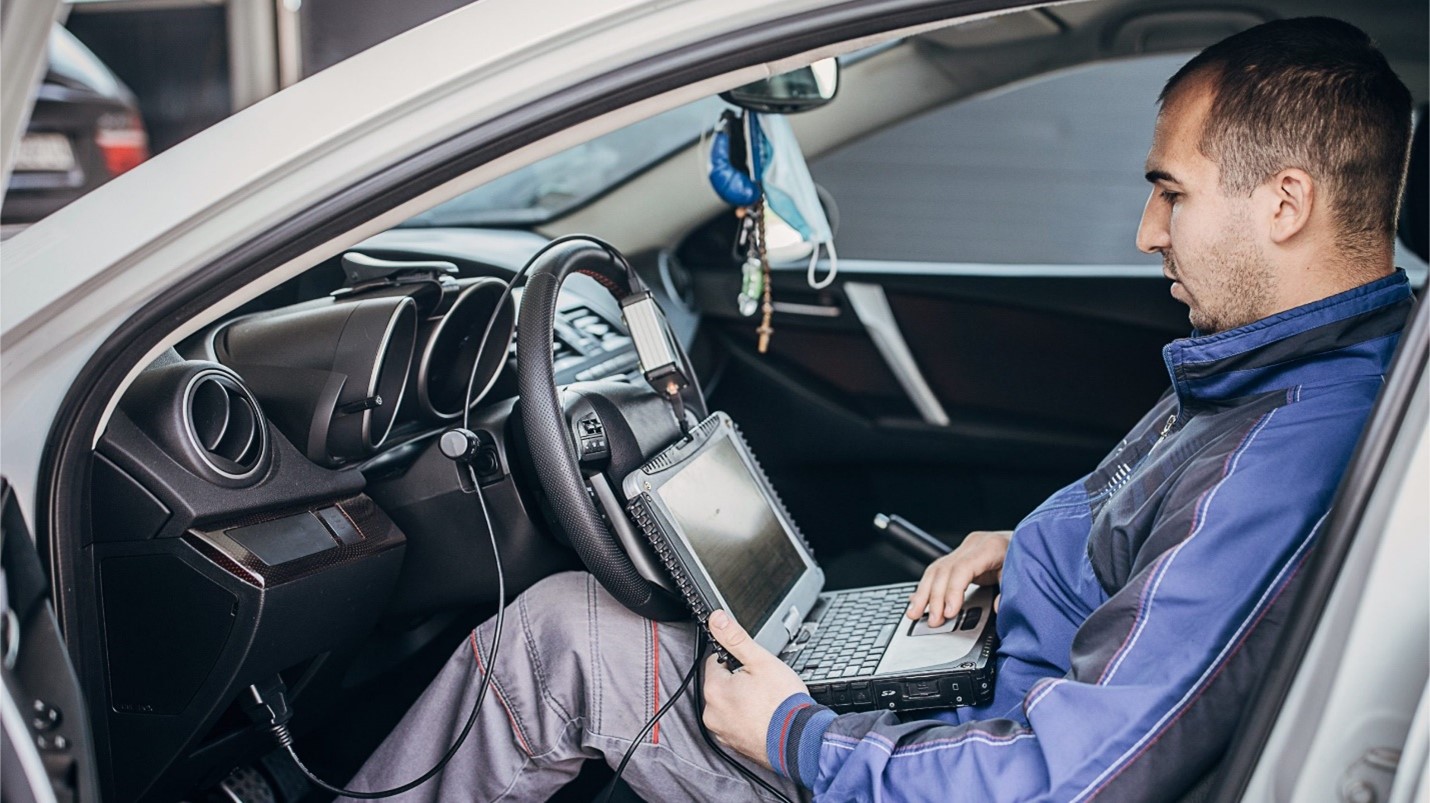If you are noticing a few more lights illuminated on your dashboard right now, you can thank the drop in temperatures. Or, it could be a broken sensor or computer that wasn't repaired properly after an accident. Check it out either way. That's why scans and calibrations are so important when you choose your body shop. They are absolutely essential to the repair process in today's Digital Age.
Today’s newer cars are enabled by highly technical computer systems, which we refer to as Advanced Driver Assistance Systems (ADAS). Don’t ignore those warning lights completely. It could be signaling a real problem or caused by chilly nights – say, lower tire pressure.
How do you know the real cause?
Take your vehicle to your dealership or mechanic where they use diagnostic scans. Likewise, if your vehicle hits a tree, ditch, or (hopefully, not), another vehicle, Anderson’s Autobody will check over the ADAS specific to your make and model as part of your repair process. It ensures all the computers and sensors are working or replaced if damaged after a crash.
That's why our diagnostic technology is so critical. When you get into an accident, your car systems can become part of the damage – even if you can’t see it. That includes bumper sensors that alert you when you get too close to something, a lane departure warning, or a light that comes on if your passenger-side airbag is enabled.
Yes, our body shop runs scans and calibrations - here's why
First, our collision auto technicians run a scan and a calibration to understand if any of those important safety systems were impacted. These two actions act as a system check to ensure that all your car’s systems are working properly and to return your vehicle to pre-accident condition. At Anderson’s Autobody, we offer both pre-scans and post-scans – like before and after – and replace any crushed or compromised sensors as part of the overall repair.
What are Diagnostic Scans?
Think of a diagnostic scan – or just simply “scans” – as a health check for your car. Our techs take a scanning device (which looks like a voltmeter, or a large remote control) and plug it into your vehicle near the steering wheel. It looks at all the car systems and lets the tech know which ones have errors. They are computer codes – or fault codes – that need to be looked at.
At Anderson’s, we perform two scans: one before the repair to let the shop know which systems have issues, and one after the repair to ensure every problem is resolved. Today, many automakers require at least one scan on a vehicle if it’s been in an accident. For your safety, we consider them essential before putting you back on the road.
What are Calibrations?
You may also hear us say calibration, typically performed after the body repairs are done. Think of it like a chiropractor visit. We make sure all the systems are working, properly “aligned” and adjusted if needed.
Even if you’ve been in a low-speed accident, systems like cameras still get jolted around. If they aren’t recalibrated, you could cause another accident! For example, we may recalibrate the backup camera that beeps if you get too close to an object. But if your backup camera isn’t recalibrated correctly, even by a fraction, you may hit something behind you. The “smart” car didn’t realize how close you were, or it just didn’t beep to tell you.
We may perform one of two types of calibrations usually through specific dealerships like Toyota or Ford:
- Static: Your car is placed on a level surface so specific areas are measured using tools like laser levels. We are looking to see if your vehicle meets the manufacturer targets, down to the millimeter or fractions of a degree.
- Dynamic: Your vehicle is moving when tested. Your car may be driven out on a busy road so we can verify that the systems are all working.
Diagnostic scans and calibrations are part of a professional collision repair process to get you back on the road.
Don't ignore your warning lights, especially on slippery roads
If your car has been in an accident, or if something feels off, please give us a call so we can diagnose the patient – your vehicle – through a scan or calibration. Or again, take it in for service if the vehicle has never been hit.
If you have visited us in the past, rest assured we have diagnosed the damage down to the digital dashboard!




